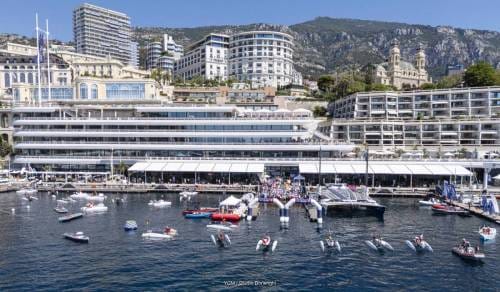Monaco’s own Venturi, a pioneering expert in electric vehicles, has never shied away from extraordinary challenges. This June, Xavier Chevrin, president of Venturi North America will follow the footsteps of Prince Albert I when he sets off on an expedition to the arctic island of Spitsbergen, which was mapped by the Prince’s great-grandfather.
A real modern-day adventurer, Xavier Chevrin has undertaken a number of epic journeys, becoming the first person to travel from Paris to China on an electric scooter before undertaking Venturi’s ‘Mission 04’, the 1st crossing of Africa by an electric vehicle and horse-riding a historic trail in the American South-West under 19th century conditions.
On 6 June, the Venturi explorer will head to the island halfway between the North Pole and Norway’s North Cape, which was mapped in 1900 by Prince Albert I aboard his research vessel, the Princess Alice. Spitsbergen, which aptly means “pointed mountains” is known for its cold arctic beauty and wildlife, including polar bears, reindeer and whales.
The Navigator Prince’s maps are still in use today
The expedition will commemorate the 100th anniversary of the death of Prince Albert I, who was also known as ‘the navigator prince’. Prince Albert I was renowned for his very precise cartography skills and some of the maps he created are still used today.
Years ago, Xavier Chevrin’s extraordinary exploits came to the notice of Gildo Pastor, president of Venturi, who invited the explorer to conduct endurance tests for Venturi vehicles. Those tests have seen Xavier Chevrin rack up more miles than anyone has ever travelled before in an electric vehicle, driving from Shanghai to Paris (14,900 km) and crossing East Africa (5,800 km) in unique conditions.
World’s first electric polar exploration vehicle
Venturi vehicles are no strangers to Arctic conditions, as the Venturi ‘Antarctica’ is the world’s first electric polar exploration vehicle. The Antarctica is currently in service at the Princess Elisabeth Antarctica station. Teams at the Belgian zero-emission base now have access to an eco-friendly mode of transport for their scientific missions. Never before has an electric vehicle with caterpillar tracks operated on the world’s most hostile continent.









